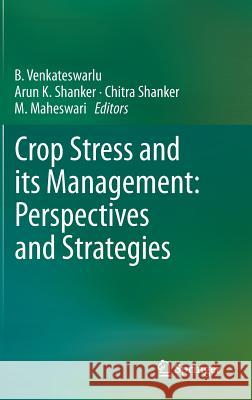Crop Stress and Its Management: Perspectives and Strategies » książka
Crop Stress and Its Management: Perspectives and Strategies
ISBN-13: 9789400722194 / Angielski / Twarda / 2011 / 612 str.
Crop Stress and Its Management: Perspectives and Strategies
ISBN-13: 9789400722194 / Angielski / Twarda / 2011 / 612 str.
(netto: 766,76 VAT: 5%)
Najniższa cena z 30 dni: 771,08
ok. 16-18 dni roboczych.
Darmowa dostawa!
Crops experience an assortment of environmental stresses which include abiotic viz., drought, water logging, salinity, extremes of temperature, high variability in radiation, subtle but perceptible changes in atmospheric gases and biotic viz., insects, birds, other pests, weeds, pathogens (viruses and other microbes). The ability to tolerate or adapt and overwinter by effectively countering these stresses is a very multifaceted phenomenon. In addition, the inability to do so which renders the crops susceptible is again the result of various exogenous and endogenous interactions in the ecosystem. Both biotic and abiotic stresses occur at various stages of plant development and frequently more than one stress concurrently affects the crop. Stresses result in both universal and definite effects on plant growth and development. One of the imposing tasks for the crop researchers globally is to distinguish and to diminish effects of these stress factors on the performance of crop plants, especially with respect to yield and quality of harvested products. This is of special significance in view of the impending climate change, with complex consequences for economically profitable and ecologically and environmentally sound global agriculture. The challenge at the hands of the crop scientist in such a scenario is to promote a competitive and multifunctional agriculture, leading to the production of highly nourishing, healthy and secure food and animal feed as well as raw materials for a wide variety of industrial applications. In order to successfully meet this challenge researchers have to understand the various aspects of these stresses in view of the current development from molecules to ecosystems. The book will focus on broad research areas in relation to these stresses which are in the forefront in contemporary crop stress research.











